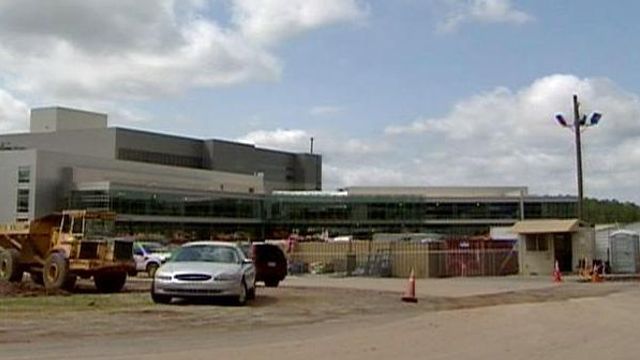Novartis opens Holly Springs flu vaccine plant
Swiss pharmaceuticals maker Novartis AG has opened the first U.S. plant to produce flu vaccines using cell cultures instead of egg-based methods, it said Tuesday.
Posted — UpdatedThe $1 billion, 430,000-square-foot plant is geared to supply 150 million doses of vaccine within six months of an influenza pandemic declaration, Novartis officials said. The plant also will be “ready to respond to a pandemic as early as 2011 if licensed in an emergency,” according to the company.
"It's going to run 24/7, (and) within a couple of years, we will have plenty of doses coming out of this plant for the whole United States," U.S. Secretary for Health and Human Services Kathleen Sebelius said. "Cell-based technology is a real step forward."
Novartis received some $487 million in funding from Health and Human Services to help build the facility. Construction has been underway for nearly two years, and workers recently installed the “reactors” in which the flu vaccine will be grown.
About 350 people will work at the plant when it is fully operational.
Holly Springs officials offered an economic incentive package estimated to be worth about $40 million to attract the plant. Mayor Dick Sears called the package a good investment.
"I think, in this day and age, with the economy the way it is, anybody that can bring 300 or 400 hundred jobs to a town is doing very well," Sears said. "As of this year, they are paying us in taxes more than (what) we're paying out on the loan. So we're ahead of the game.
"We're very happy campers."
Gov. Beverly Perdue said the Novartis plant is another example of the benefits of using incentives to recruit business to North Carolina.
"North Carolina has to compete. (Incentives are) one of the tools in our toolbox," she said.
Although the plant isn’t expected to produce vaccines to combat the ongoing H1N1 pandemic, Novartis officials said it could begin production of an adjuvant – an ingredient that boosts the effectiveness of vaccines – in December.
The company will use the plant for production of vaccines based on cell cultures rather than the traditional means of produce vaccines through the cultivation of seed virus in chicken eggs.
"This is going to be much better, much more reliable for future pandemics or preparing for the possibility for the future pandemics," 4th District Congressman David Price said.
The sale of flu vaccines from cell cultures is not yet approved in the United States, but Novartis is allowed to produce them in Holly Springs. Novartis already operates a cell-based flu vaccines plant in Marburg, Germany.
• Credits
Copyright 2024 by WRAL.com and the Associated Press. All rights reserved. This material may not be published, broadcast, rewritten or redistributed.






